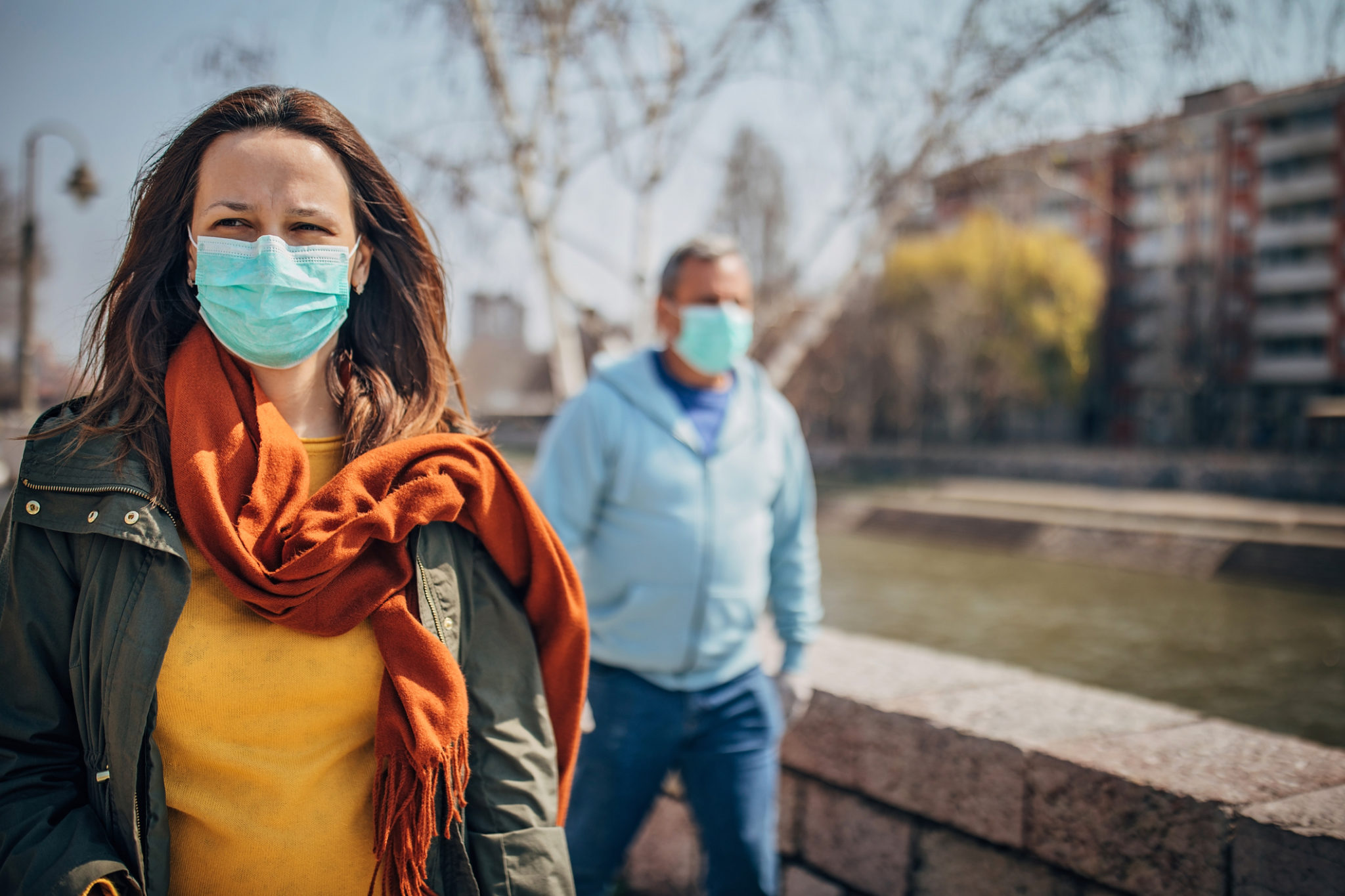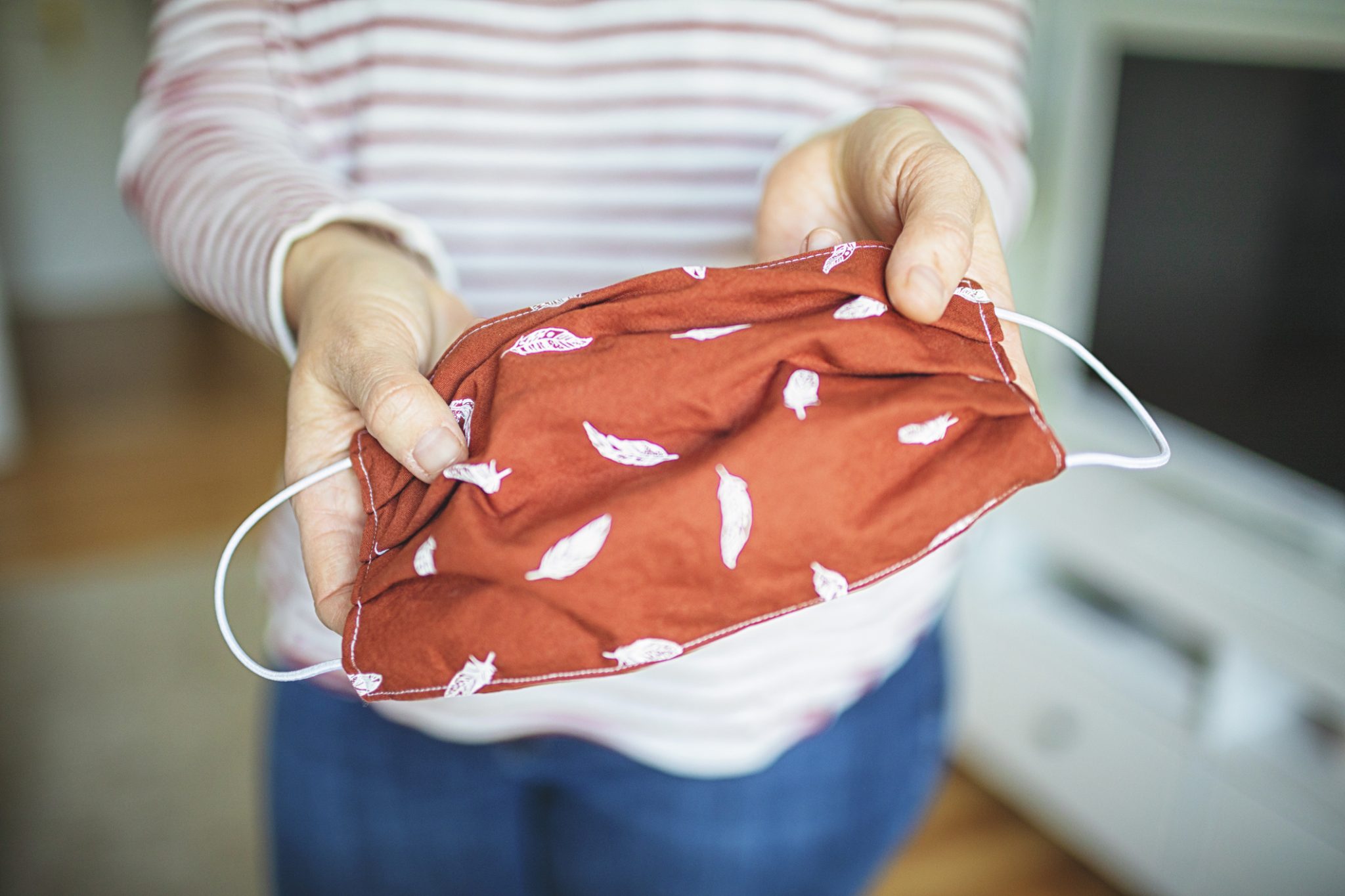Everything You Should Know About New Mask Guidelines

November 09, 2021
Wearing a face mask, along with other practices like social distancing, helps to slow the spread of COVID-19. Just as important as remembering your mask, though, is wearing it correctly and choosing an appropriate one.
“If you’re constantly adjusting your masks because it’s slipping down your nose, it means that the masks don’t fit properly and don’t offer the same protection that a well-fitting mask would,” says Cristina Cicogna, M.D. an infectious disease specialist at Hackensack University Medical Center. “Take the time to find a suitable mask and adjust the ear straps or nose wire so that you’re doing the best you can to protect your health or the health of others in your community.”
Choosing the right mask
The U.S. Centers for Disease Control and Prevention (CDC) doesn’t recommend one particular type of mask over another for everyday use, but they have created guidelines to help ensure that you choose a face covering that will protect you and offer protection to those around you.
When choosing a face mask, the CDC recommends that you look for one that covers your entire nose and mouth and has:
- two or more layers of a type of fabric that’s both breathable and washable
- a wire across the bridge of your nose at the top of the mask, to help you mold it to fit your face
- a snug fit along the sides of your face, rather than gaps between the material and your skin
The CDC also recommends that you avoid wearing face coverings that:
- are made of vinyl or another material that would make it difficult for you to breathe through
- have vents or “exhalation valves,” which would make it possible for you to spread germs to others each time that you exhaled
- are worn by health care workers, such as N95 masks (which are also called respirators)
Here are answers to other mask-related questions:
Can I still wear disposable masks?
Yes, although they may not fit as snugly as other masks that have nose wires or cloth material. You may also improve the fit by tying a knot in each ear loop close to the edge of the mask, then tucking the extra material inside the mask – the CDC recommends this quick how-to video for guidance.
Can I double-mask for extra protection?
Yes, if you do it correctly. You can wear a fabric mask over a disposable mask, using the cloth mask to press the edges of the disposable mask against your face. The CDC recommends against wearing two disposable masks on top of each other or wearing a KN95 mask with any other type of mask (disposable, fabric or KN95).
Can I wear a gaiter?
Yes, as long as it has two or more layers. You can fold the gaiter to create a second layer, if need be, as long as it completely covers your nose and mouth.
Can I wear a face shield instead of a mask?
No, although you can wear a face shield over a mask. Researchers are unsure whether face shields by themselves are effective at protecting the wearer or people in the vicinity, and the CDC recommends against the practice.
Can I use my winter scarf as a face mask?
No, although you can wear a scarf over your mask if it’s cold out. Scarves, ski masks and other knit winter wear is loosely woven, which doesn’t offer a protective barrier the way that other fabrics do.
Is there special mask guidance for winter weather?
If your mask becomes wet from snow, rain or the mist of your breath, remove it and put on a new, dry mask. When you know that you’ll be out in wintry weather, bring a few spare masks.
The material provided through HealthU is intended to be used as general information only and should not replace the advice of your physician. Always consult your physician for individual care.
Find a doctor near me
Answered: 5 Questions about Face Masks

Learn about face masks from a medical expert. Get answers to key questions regarding mask types and proper usage for better protection.
What Can You Do After You’re Fully Vaccinated Against COVID?

There are advantages to getting fully vaccinated against COVID-19.
